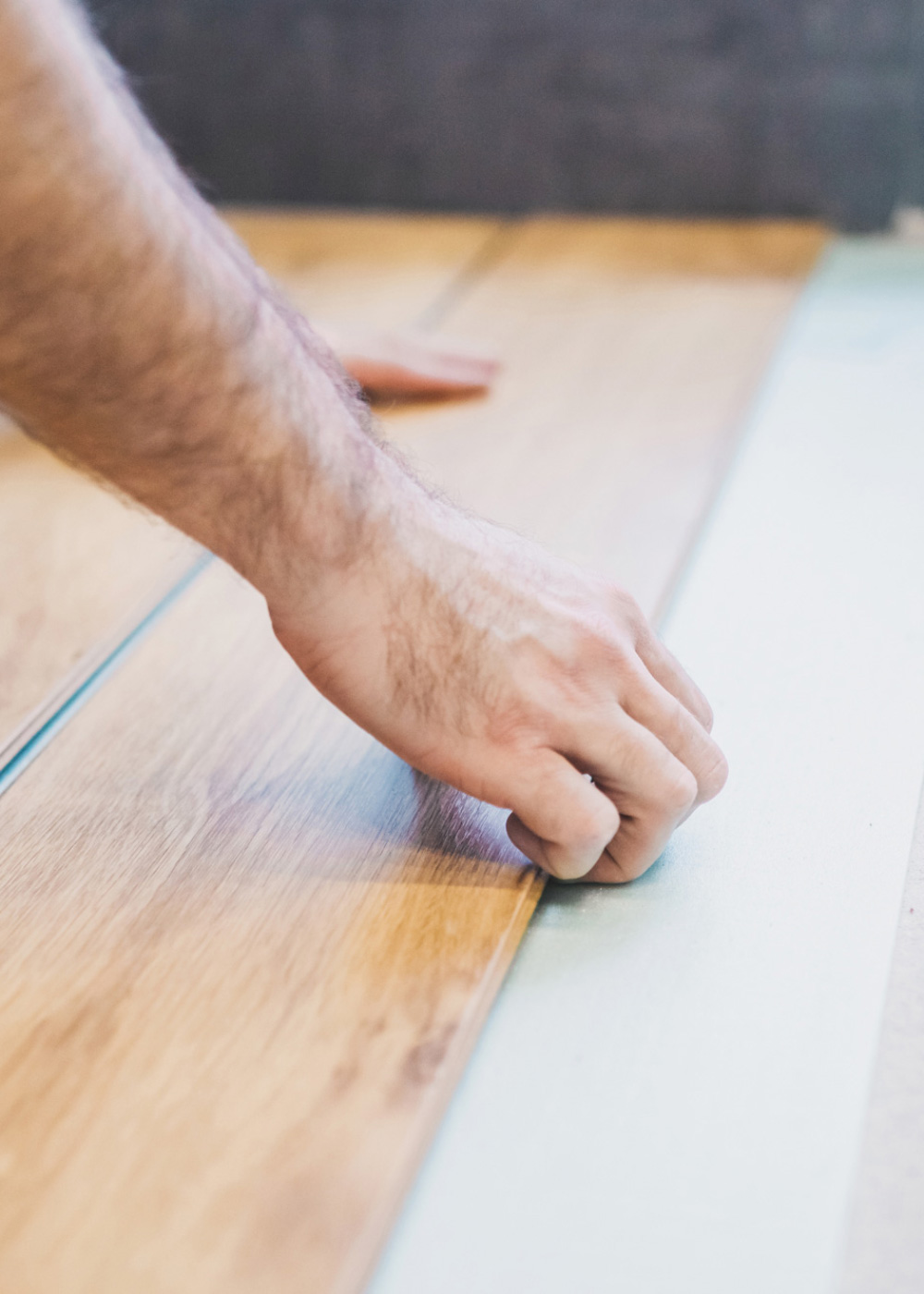The Roadmap to Flooring Excellence
Unveiling the Journey of Becoming a Skilled Floor Layer
- Floorlayers
- May 17, 2023
- Back to Blog

Are you interested in a career that combines creativity, craftsmanship, and the opportunity to transform spaces? Becoming a floor layer might be the perfect path for you. As a floor layer, you’ll play a vital role in the installation of various flooring materials, ensuring the perfect fit, functionality, and aesthetic appeal. In this career, you’ll have the chance to showcase your attention to detail, problem-solving skills, and artistic vision. But how do you become a floor layer? In this guide, we’ll walk you through the steps and requirements to pursue a career in floor installation. From education and training options to the importance of hands-on experience and continuous learning, we’ll explore the roadmap to becoming a skilled floor layer. Additionally, we’ll highlight the benefits of joining a floor layer union or professional association for networking and career advancement opportunities. So, if you’re ready to delve into the world of floor installation, let’s get started on this exciting journey together.
The Role of Flooring Installers
Flooring installers play a crucial role in ensuring the successful installation of various types of flooring materials. Their responsibilities go beyond simply laying down the flooring; they are skilled professionals who bring expertise, precision, and attention to detail to every project.
Responsibilities of Flooring Installers
- Accurate Measurement: Flooring installers are responsible for precise measurements of the installation area. This involves taking into account irregularities, corners, and other architectural nuances to ensure a seamless fit.
- Cutting and Fitting: Once the measurements are taken, flooring installers use their skills to cut the flooring materials accurately. They must carefully match patterns, align pieces, and make intricate cuts to fit around obstacles such as doorways or fixtures.
- Installation Techniques: Flooring installers employ various techniques based on the type of flooring material being used. They may use adhesives, nails, or other fastening methods to secure the flooring to the subfloor.
- Subfloor Preparation: Proper subfloor preparation is essential for a successful floor installation. Flooring installers evaluate the condition of the subfloor, address any issues such as unevenness or moisture problems, and ensure a smooth and stable base for the flooring materials.
- Attention to Detail: Flooring installers must have a keen eye for detail. They carefully inspect each piece of flooring material for imperfections, ensuring a high-quality installation. They also pay close attention to alignment, patterns, and transitions between different flooring sections.
Why Choose a Career as a Flooring Installer
A career as a flooring installer offers a range of compelling reasons for individuals to consider pursuing this profession. From job stability and growth prospects to the satisfaction of transforming spaces, here are some key factors that make it an attractive career choice:
Job Stability and Growth Prospects
- Constant Demand: The construction and home improvement industries have a consistent need for flooring installers. Whether it’s new construction projects, renovations, or commercial installations, the demand for skilled professionals remains steady.
- Growth Opportunities: As the construction industry continues to evolve, flooring installers have opportunities for career advancement. With experience and additional training, installers can specialize in specific flooring types, become supervisors, estimators, or even start their own businesses.
- Market Resilience: The need for flooring installation extends beyond economic fluctuations. Even during challenging times, homeowners and businesses prioritize the maintenance and upgrading of their floors, ensuring a degree of job stability for flooring installers.
Flexibility in Work Settings and Opportunities for Self-Employment
- Diverse Work Environments: Flooring installers enjoy the flexibility of working in various settings. They can be involved in residential projects, commercial properties, hospitality venues, or even specialize in niche areas like sports flooring or historic restoration.
- Self-Employment Opportunities: Many flooring installers have the option to be self-employed, offering the freedom to manage their own schedules, choose clients and projects, and build their reputation within the industry.
- Entrepreneurial Spirit: For individuals with an entrepreneurial mindset, a career as a flooring installer provides the opportunity to build a successful business. With hard work, dedication, and excellent craftsmanship, flooring installers can establish themselves as reputable contractors and expand their operations.
Personal Satisfaction in Transforming Spaces and Providing Quality Flooring Solutions
- Creativity and Artistry: Flooring installation allows individuals to showcase their creativity and artistry. From intricate patterns to unique designs, flooring installers have the chance to create visually stunning spaces that reflect their skills and craftsmanship.
- Transforming Spaces: As a flooring installer, you have the power to transform the look and feel of a room or building. Each installation contributes to the overall ambiance and functionality of a space, providing immense satisfaction and a sense of accomplishment.
- Enhancing Quality of Life: High-quality flooring improves the comfort, safety, and durability of living and working environments. Knowing that you have played a role in enhancing the quality of life for occupants brings a deep sense of fulfillment.
Choosing a career as a flooring installer offers a combination of job stability, growth prospects, and the opportunity to make a tangible impact on spaces. Whether it’s working in diverse settings, pursuing self-employment, or experiencing the satisfaction of transforming floors, this profession offers a fulfilling path for individuals passionate about the construction industry and creating beautiful, functional spaces.
How to Become a Floor Layer
Becoming a floor layer requires a combination of education, training, and hands-on experience. Here is an overview of the steps and requirements to embark on a career as a floor layer:
Education and Training
- High School Education: While a high school diploma or equivalent is typically the minimum educational requirement, taking courses in mathematics, shop, and technical drawing can provide a solid foundation for a career in flooring installation.
- Trade Schools and Vocational Programs: Many trade schools offer specialized programs in flooring installation. These programs provide comprehensive training in various types of flooring materials, installation techniques, safety protocols, and industry standards.
- Apprenticeship Programs: Apprenticeships offer a valuable opportunity to learn the trade while gaining practical experience under the guidance of experienced floor layers. These programs typically combine classroom instruction with on-the-job training, allowing apprentices to earn a wage while learning the skills of the trade. Click to learn more about Floorlayer’s training program.
- Certification Programs: Some organizations offer certification programs that validate the skills and knowledge of floor layers. These certifications can enhance credibility and demonstrate expertise in the field.
Hands-on Experience
- Practical Training: Hands-on experience is crucial for developing the skills necessary to become a proficient floor layer. It involves working alongside experienced professionals, honing techniques, and gaining an understanding of the intricacies of different flooring materials.
- On-the-Job Training: Many floor layers start their careers as helpers or apprentices, working on actual projects to further develop their skills. This real-world experience provides insights into the challenges and nuances of the job.
Continuous Learning and Professional Development
- Staying Updated: The flooring industry is constantly evolving, with new materials, techniques, and technologies being introduced. To excel as a floor layer, it is essential to stay updated on the latest industry trends and advancements.
- Continuing Education: Participating in continuing education programs, workshops, and seminars can help expand knowledge and skills, ensuring that floor layers remain competitive and proficient in their craft.
Joining a Floor Layer Union or Professional Association
- Benefits of Union Membership: Joining a floor layer union offers numerous advantages, including access to training programs, networking opportunities, and advocacy for fair wages and working conditions through collective bargaining. Click to learn more about Floorlayer Union Local.
- Professional Associations: Membership in professional associations provides additional resources, networking opportunities, and a platform for collaboration with industry peers. These associations often offer educational resources, conferences, and industry updates.
Becoming a floor layer requires a combination of formal education, hands-on experience, and a commitment to continuous learning. By pursuing education and training through trade schools, apprenticeships, or certification programs, individuals can gain the necessary skills and knowledge to excel in the field. Joining a floor layer union or professional association provides further benefits, such as networking opportunities and access to ongoing professional development resources. By embracing these steps and opportunities, aspiring floor layers can embark on a rewarding career in the flooring industry.
Becoming a skilled floor layer offers a fulfilling career path that allows you to unleash your creativity and precision while transforming spaces. By following the steps outlined in this guide, including education, hands-on experience, and continuous learning, you can excel in floor installation. Stay updated with industry advancements and consider joining a floor layer union or professional association for networking and career advancement opportunities. As a floor layer, each installation showcases your attention to detail and artistic vision, bringing satisfaction in creating visually stunning and functional spaces. Embrace the journey of becoming a skilled floor layer and enjoy the fulfillment that comes from transforming floors and leaving a lasting impact on the places we live and work. Your future as a talented floor layer awaits!
